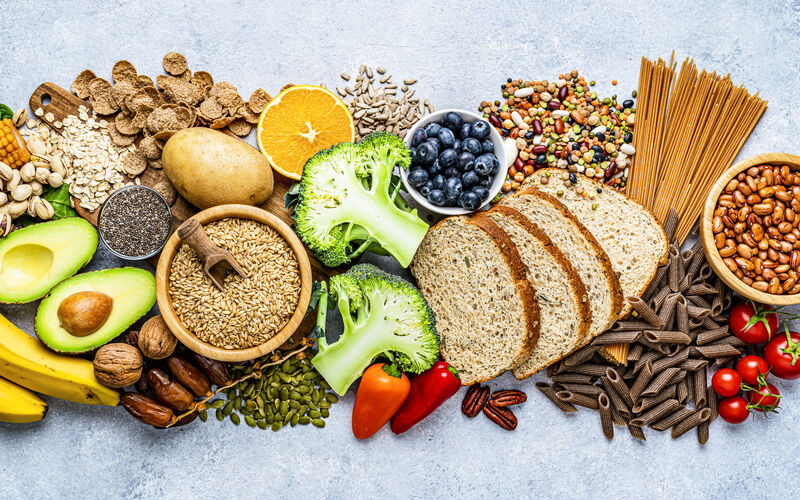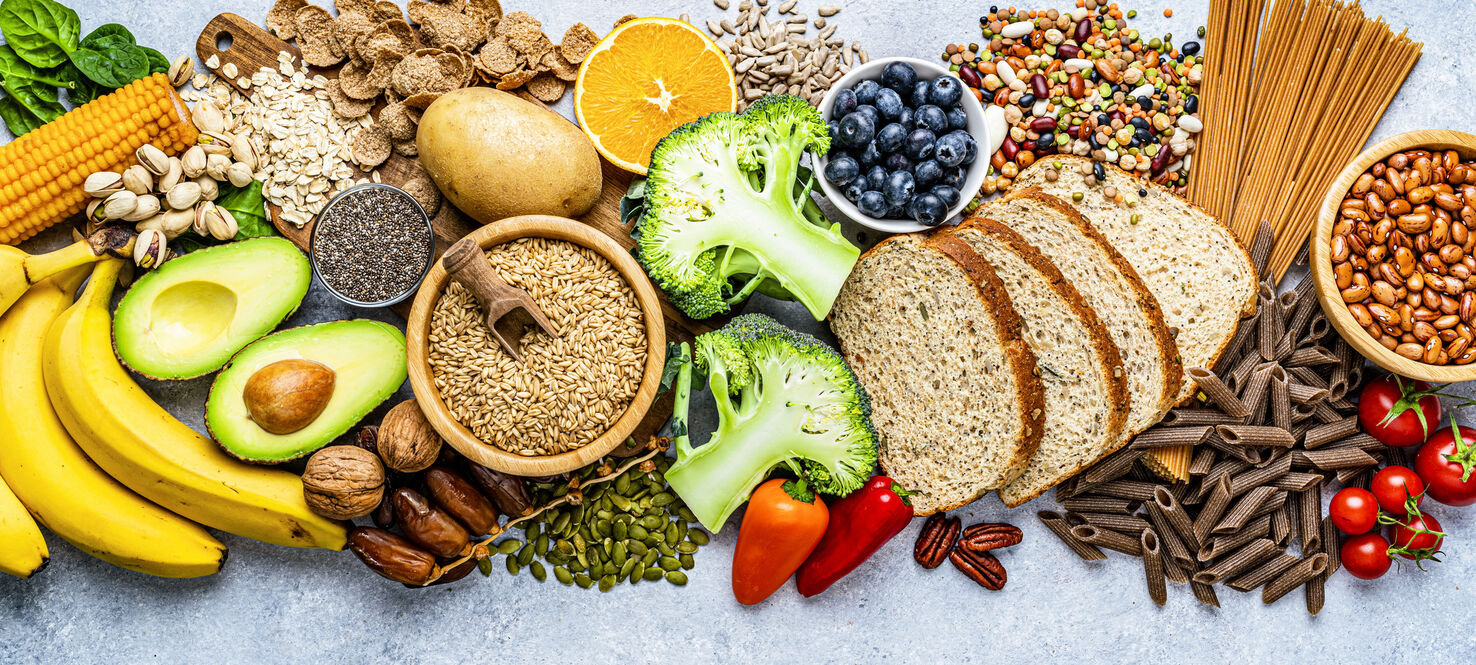The Power of Fiber: How Diet Can Help Fight Cancer and Improve Recovery
What if a simple change in diet could help prevent cancer or improve recovery after a major medical procedure? That’s what two studies presented at the American Society of Hematology annual meeting suggest.
Both research projects suggest that a high-fiber diet that’s rich in plant-based foods like beans, fruits and vegetables can have powerful effects on cancer prevention and recovery, especially for people at risk for blood cancers or those undergoing stem cell transplants.
Researchers from City of Hope National Medical Center revealed new details about the role of fiber in recovery after a stem cell transplant, which can be used to treat certain types of cancer, like leukemia and lymphoma. During a stem cell transplant, a person’s damaged blood cells are replaced with healthy cells from themself or a donor. However, sometimes the new cells attack the patient’s body in a condition called graft-versus-host disease (GVHD). This can cause problems like severe digestive issues, infections and even death.
Normally, doctors tell patients to eat a low-fiber diet for about a month before and after the transplant to avoid foodborne infections. This often means eating cooked foods and avoiding raw vegetables or fruits with skins. However, researchers found that eating more fiber could actually help protect the gut and prevent GVHD.
In their study, the researchers followed 173 patients who were about to receive stem cell transplants. They tracked what the patients ate and found that those who ate more fiber had better overall survival rates, less GVHD and healthier gut microbiomes.
These patients also had higher levels of butyrate, a substance produced when fiber is broken down by gut bacteria. Butyrate is linked to reduced inflammation, stronger immune systems and better gut health. These are important factors for patients who are recovering from transplant surgery.
Another study from researchers at Memorial Sloan Kettering Cancer Center looked at how a high-fiber diet might help people with precursor conditions that can lead to multiple myeloma, a type of cancer that affects the blood and bone marrow.
Before multiple myeloma develops, patients usually have one of two conditions: monoclonal gammopathy of undetermined significance (MGUS) or smoldering multiple myeloma (SMM). These conditions don’t cause cancer immediately, but they can eventually progress into multiple myeloma.
Researchers wanted to know if a high-fiber diet could help slow the development of multiple myeloma in people with the precursor conditions. Their study looked at 20 patients who followed a plant-based, high-fiber diet for a year. The diet included beans, fruits, vegetables and whole grains while avoiding processed foods and animal products.
During the first three months, participants received ready-made meals and virtual nutrition coaching. After that, they prepared their own meals with continued guidance. Participants lost an average of 7% of their body weight and showed improvements in their overall health, including better insulin resistance, lower inflammation and a healthier gut microbiome.
Most importantly, two patients who were showing signs of disease progression experienced a slowdown in their disease while on the high-fiber diet. While the results were limited to just two patients, it was the first time that an interventional study showed that dietary changes could actually delay the progression of a blood cancer precursor.

Ciara Freeman, MD, PhD
"The NUTRIVENTION study provides compelling early evidence that dietary interventions may positively impact precursor plasma cell disorders,” said Ciara Freeman, MD, PhD, an oncologist in the Blood and Marrow Transplant and Cellular Immunotherapy Department at Moffitt Cancer Center. “In this small cohort of patients, the data suggest that a high-fiber, plant-based diet may play a role in limiting disease progression, potentially through effects on immune cell modulation, inflammation reduction and microbiome health. While further research is needed, these findings emphasize the promising intersection of nutrition and cancer prevention."
While these two studies focus on different cancer types, they both highlight the importance of gut health in cancer prevention and recovery. In both cases, the patients who ate more fiber showed improvements in their gut microbiome — the trillions of bacteria living in our intestines that play a key role in digestion, immune function and inflammation.
While more research is needed, these studies show that simple dietary changes could be a key part of cancer care. By focusing on plant-based, high-fiber foods, patients might not only feel better but also improve their chances of surviving cancer and recovering more quickly.




